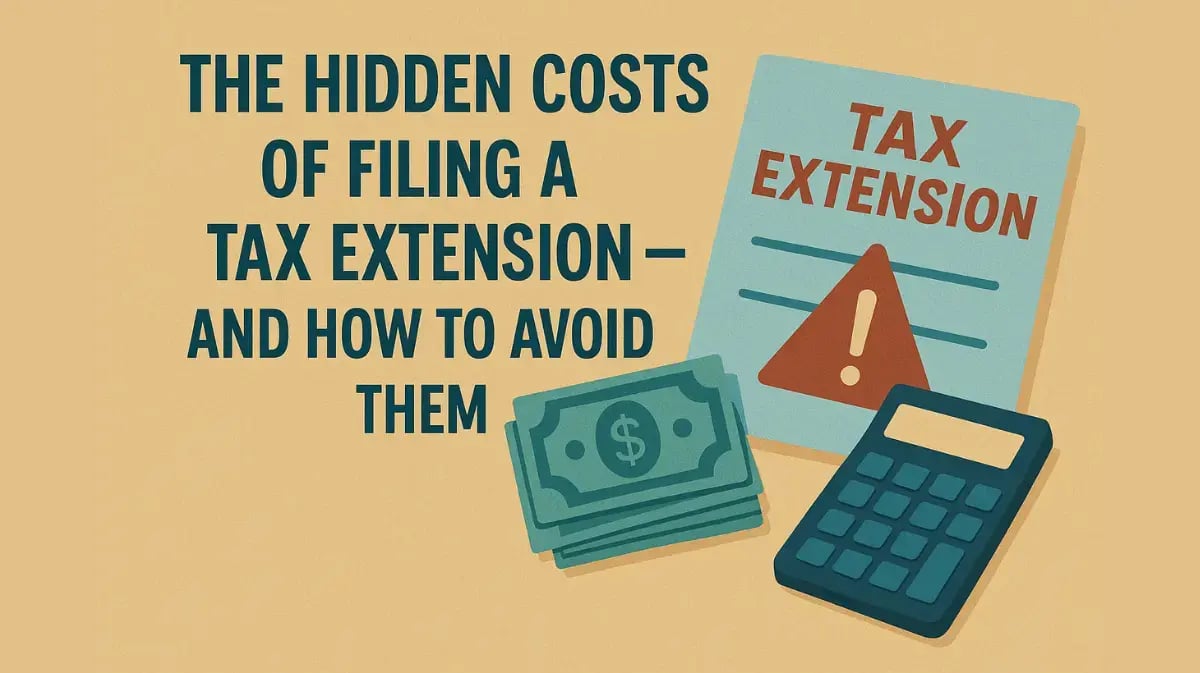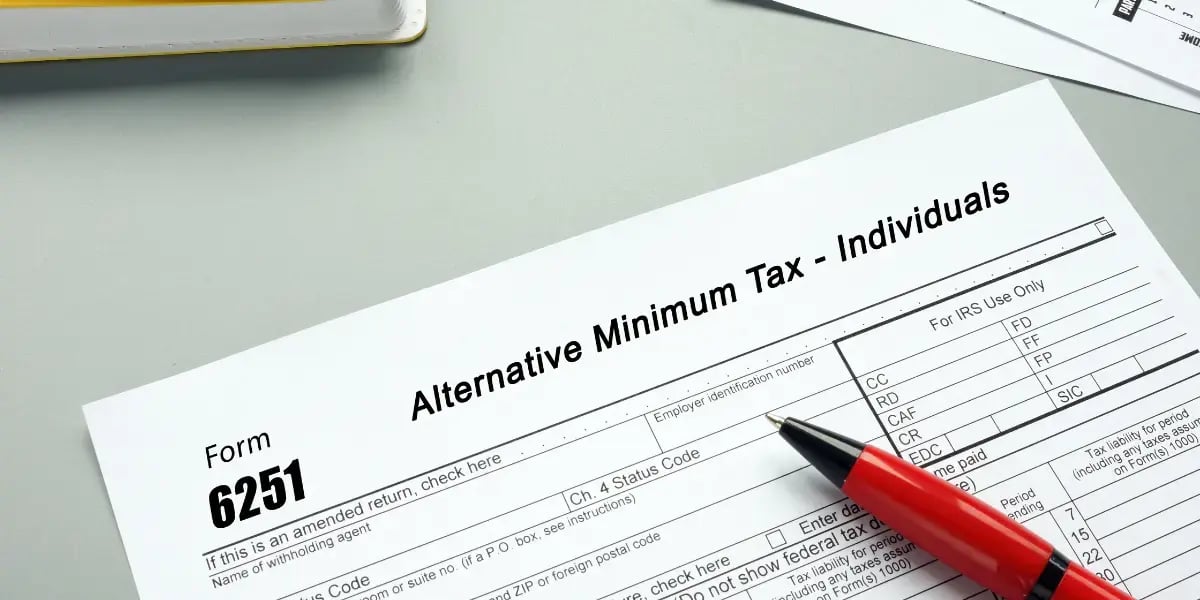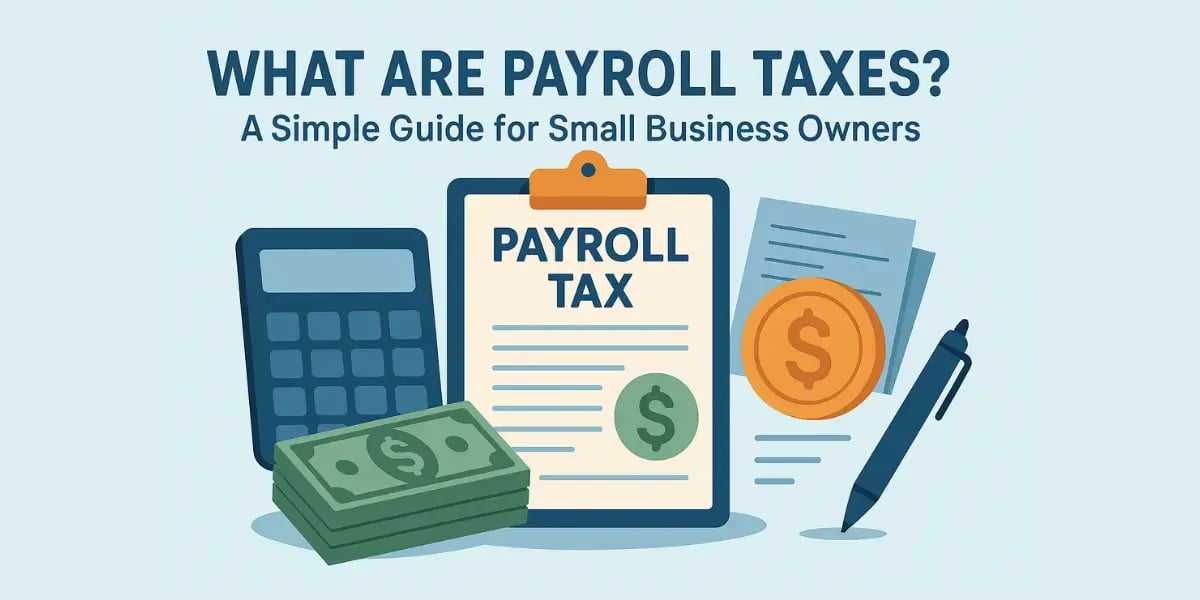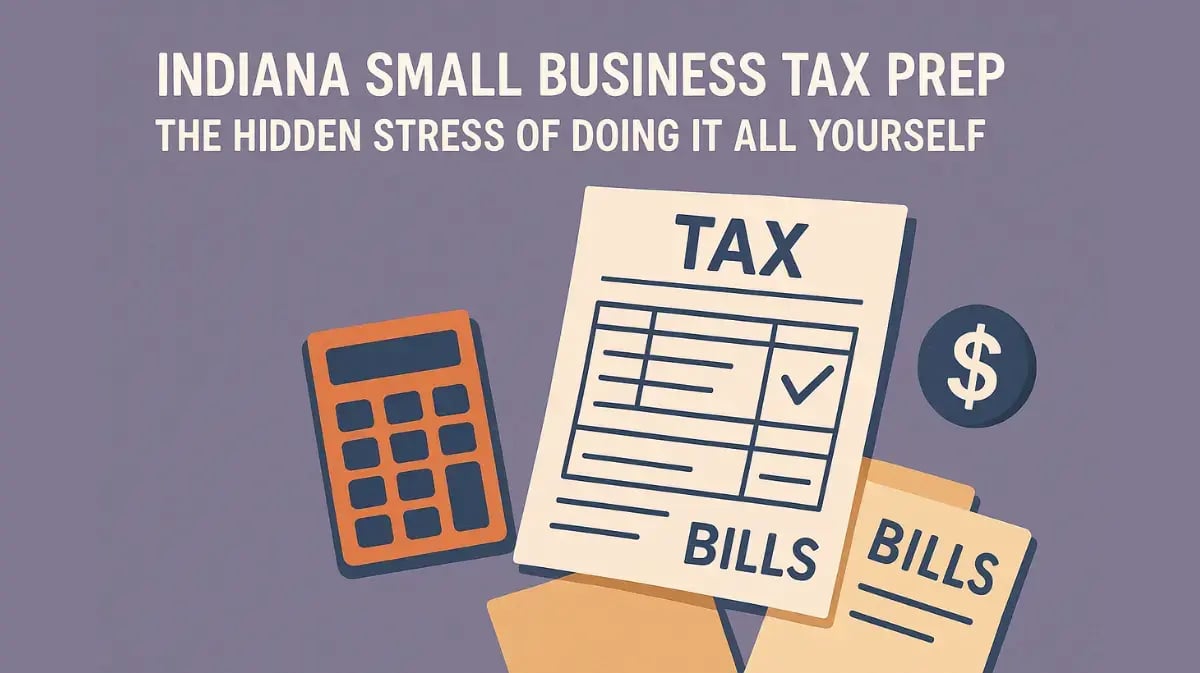The Hidden Costs of Filing a Tax Extension — And How to Avoid Them
August 5th, 2025
6 min read

Filing a tax extension seems like an easy way to buy time, right? But for small business owners, it can quietly cost more than you expect.
When tax time rolls around, it’s tempting to push the stress aside by filing an extension. After all, the IRS gives you up to six extra months to get your paperwork in order. No harm done, right?
Not exactly.
For many small business owners, filing a tax extension can lead to hidden costs that go far beyond the surface. From penalties and interest to delayed decisions and missed opportunities, extensions are more expensive than they appear.
Below, we’ll explain how tax extensions work, what they don’t do, and why they can quietly drain your time, money, and focus if not handled carefully.
What Is a Tax Extension (Really)?
A tax extension is a formal request to delay the filing of your tax return, not the payment.
This is a common mistake. Many business owners assume that filing an extension means they don’t have to pay anything until the new deadline. But in reality, the IRS still expects your estimated tax payment to be made by the original due date.
For businesses, that’s typically:
- March 15 for partnerships and S corporations (Forms 1065 and 1120S)
- April 15 for C-corporations and individual returns (Forms 1120 and 1040)
True, an extension gives you six more months to file your return, but any unpaid taxes after the original deadline will begin to accrue penalties and interest immediately.
Filing is usually done electronically through your tax preparer, but you can also mail a paper extension if you prefer. It’s a simple process, but the real risk comes afterward.
Hidden Cost #1: Late Payment Penalties
One of the most common—and costly—misunderstandings about tax extensions is that they delay your payment deadline. They don’t. An extension only gives you more time to file your return, not to pay what you owe.
If you don’t pay your estimated taxes by the original deadline (usually April 15 for individuals and March 15 for most business entities), the IRS starts adding penalties right away.
Here’s how it works:
- Failure-to-pay penalty: 0.5% of the unpaid tax per month, up to a total of 25%.
- Interest: Charged daily on the unpaid balance, based on the IRS’s current interest rate (which can change quarterly).
Let’s say your business owes $10,000 in taxes, and you file an extension but don’t make a payment. Six months later, when you finally file, you could owe:
- Roughly $210 in penalties (0.7% per quarter × 2 quarters = 1.4% of $10,000)
- Another $250 or more in interest, depending on the current IRS rate
That "extra time" could quietly cost you nearly $500, even before your return is filed. And that’s based on a relatively modest tax bill. If your unpaid balance is higher or the delay is longer, the cost grows quickly.
This is how business owners end up with unexpected bills. They assume that filing an extension means they can wait to deal with taxes, when in reality, the meter starts running the moment the original deadline passes.
How to Avoid It
Even if you need more time to finish the return, work with your accountant to estimate your tax liability and make a payment by the original due date.
It doesn’t have to be exact. The IRS usually waives penalties if you pay at least 90% of what you owe when you file the extension. A good advisor can help you determine a safe amount to pay.
You can also avoid problems by planning ahead:
- Set aside funds each month for taxes in a separate account.
- Review your estimated tax needs quarterly with your accountant.
- Utilize bookkeeping software to keep your financial records up to date.
Waiting until April to sort things out often leads to rushed decisions and costly mistakes. A little preparation early in the year goes a long way toward protecting your cash flow later.
Hidden Cost #2: Loss of Momentum and Focus
Filing an extension often feels like a smart way to reduce pressure. You buy yourself time, avoid the April scramble, and push taxes down the road.
But here’s the catch: you haven’t finished the job—you’ve just moved the deadline.
And that lingering task? It hangs over your head for months.
This kind of delay keeps your financial year open longer, which can quietly disrupt other areas of your business. Important decisions, like applying for a loan or evaluating profitability, may stall until your tax return is finalized. You may also hesitate to launch new initiatives because your books feel “unfinished.”
Here’s what we often see with business owners who file extensions:
- They feel mentally stuck. The tax return becomes a lingering to-do that weighs on them for months.
- They lose clarity. With one year’s taxes still unresolved, it’s harder to focus on forward-looking financial planning.
- They fall behind. When fall arrives, they’re not only behind on last year’s tax return, they’re also trying to prep for the current year.
Before they know it, they’re in a cycle of delay and catch-up, filing in October just to turn around and start the next tax season two months later. There’s barely time to breathe, let alone plan.
How to Avoid It
The best way to keep momentum is to treat tax time like a project with a firm deadline.
Start organizing early in the year:
- Create a tax prep checklist that includes income documents, expense summaries, W-2s, 1099s, and other required forms.
- Use a secure document portal to gather everything in one place.
- Set deadlines for yourself well before the official IRS due date.
If you work with an accountant or bookkeeper, make it a priority to respond quickly to their requests and questions. Those follow-up emails aren’t just busywork; they’re often the key to unlocking better deductions or avoiding errors.
Hidden Cost #3: Higher Tax Preparation Fees
Another downside? Waiting can cost you more in professional fees.
When accountants are swamped near the extended deadline, your return may cost more to prepare, especially if it’s complex or requires a quick turnaround. Some firms even add a surcharge for last-minute work or “rush” returns.
Also, preparing an extension the right way often takes time. A good tax preparer or accountant won’t just delay your return; they’ll help you estimate your tax liability and guide you in making an extension payment. That requires effort, analysis, and additional communication, which may increase the overall fee, depending on their pricing structure.
How to Avoid It
One word: timing.
Don’t wait until March (or worse, October) to start working on your taxes.
If you’re a business owner, consider moving to monthly accounting support. Having up-to-date books year-round makes tax preparation faster and more straightforward.
The cleaner your records, the easier the return, and the lower the fee, typically. Plus, when your accountant isn’t rushed, they’re more likely to spot deductions or tax-saving opportunities. Investing in steady bookkeeping throughout the year can pay for itself by tax time.
Hidden Cost #4: More Likely to Trigger IRS Scrutiny
Filing an extension doesn’t automatically increase your chances of an audit, but it can if you rush through it.
When business owners wait until the last minute to file their extended return, they’re more likely to:
- Misplace documents
- Forget income sources
- Overlook deductions or errors
That makes the return more prone to mistakes and inconsistencies. If something doesn’t add up, the IRS may take a closer look. You could be inviting scrutiny simply because you ran out of time to double-check your numbers.
Even something as simple as a missing 1099 or misreported figure could flag your return for review. And when the IRS comes knocking, it means more time, more paperwork, and sometimes more cost, even if you did everything right.
How to Avoid It
Stay organized throughout the year. Use accounting software to track income and expenses, and reconcile accounts monthly or quarterly so nothing slips through the cracks.
If you must file an extension, use the extra time wisely. Don’t put it off until the last minute. Build a buffer before the extended deadline so your return can be reviewed thoroughly.
Consider scheduling a mid-year tax check-in with your accountant to catch potential issues early. This can give you peace of mind as tax time approaches.
When Filing an Extension Does Make Sense
Despite the downsides, there are times when filing an extension is a logical move.
Here are a few examples:
- You’re waiting on key documents, like a Schedule K-1 from a business partner.
- You’ve had an unexpected life event, such as illness or a family emergency.
- Your books need cleaning up, and filing now would lead to errors.
- You want more time to make a retirement contribution (such as a SEP IRA) that reduces last year’s tax.
In these situations, an extension can help you avoid filing an incomplete or inaccurate return. Just make sure you still estimate and pay your tax by the original deadline to avoid penalties.
Tax Extensions Feel Easy, But the Costs Add Up
On the surface, filing an extension looks like a stress-reliever. But in many cases, it just delays the inevitable and makes things worse. From penalties and preparation fees to missed opportunities and increased risk, extensions often come with a higher price tag than expected.
That doesn’t mean they’re always bad, but they shouldn’t be a default move.
If you’re feeling overwhelmed at tax time, don’t wait until the deadline to reach out. Owning and operating a successful business is already hard enough—your finances shouldn’t make it harder.
At TMA Accounting, we help small businesses avoid costly surprises by offering year-round accounting and support. Our services are built to keep you organized and confident so you can focus on running your business, not chasing deadlines.
Let’s make tax time simpler. Contact us today to learn how we can help.
Blog Disclaimer: Nothing in this post constitutes legal, tax, or financial advice and is intended for informational and educational purposes only. This informational and educational material is not intended, and must not be taken, as legal, tax, or financial advice on any particular set of facts or circumstances or as recommendations that are suitable for any specific person. You need to contact a lawyer, accountant, or financial adviser licensed in your jurisdiction for advice on your specific questions, issues, and concerns. View our full Terms of Use here.
Topics:























